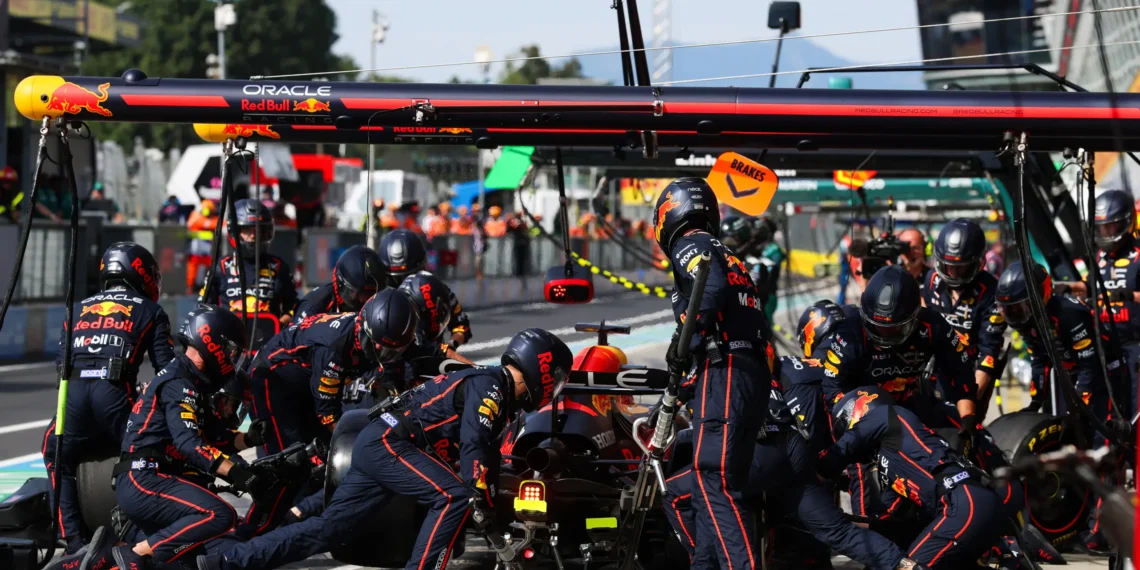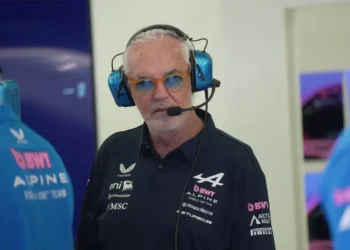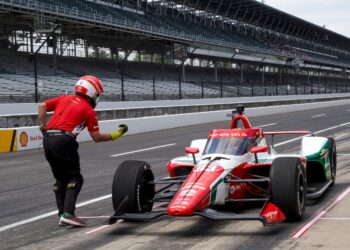Formula 1’s Unsung Heroes: The Shocking Truth About Pit Crew Pay and Work Conditions Revealed!
In a high-octane world where speed and precision reign supreme, the unsung heroes of Formula 1—its mechanics—are finally getting the spotlight they deserve. Former Red Bull mechanic Calum Nicholas has bravely taken to social media to expose the harsh realities of life in the fast lane, slamming a recent online critic who belittled the monumental efforts of F1 pit crews.
The controversy erupted during the Italian Grand Prix, where a slow pit stop cost Lando Norris a coveted second place. This incident not only highlighted the pressure mechanics face but also ignited a firestorm of debate over the value of their contributions. McLaren’s decision to order teammate Oscar Piastri to relinquish his position back to Norris added fuel to the already heated discussions about team dynamics and the ethics of racing.
Nicholas, a pivotal figure behind Max Verstappen’s four World Championship titles, did not hold back in his response to the dismissive comments about mechanics’ roles, stating, “This is why so few people in the paddock interact on here. Bs opinions like this. It’s embarrassing.” With his extensive experience, Nicholas provided a reality check on the misconceptions surrounding the profession, clarifying that the average salary for a tech in F1 is closer to an astonishing £60,000—not the pittance some might believe—and that these dedicated individuals often toil for about 70 hours a week!
In a world where luxury is the name of the game, many mechanics fly economy class, and no one on the pit crew sees a bonus for their grueling hours. Nicholas further asserted, “Nobody is there just to do pitstops. Only 60 operational personnel are allowed at the track, there’s no room for it.” This stark reality underscores the multifaceted roles these professionals play, as they are responsible for much more than just the fleeting seconds during a pit stop.
Reflecting on his own journey in the sport, Nicholas shared, “My first salary travelling the world in F1 at 22 was £42k. With no responsibilities at home, it felt like I’d hit the lottery.” However, this was before the intense demands of modern racing took hold. Now, with the season stretched to an exhausting 24 races and the introduction of complex 1.6-litre turbocharged V6 hybrid engines, the workload has skyrocketed. “But it was also only a 17 race season, with no triple-headers,” Nicholas pointed out, emphasizing the significant changes in the industry.
When questioned about the impact of F1’s cost cap on crew salaries, Nicholas did not mince words, asserting that even without the cap, pit crew salaries would remain modest. “I mean, my general answer to this is ‘yes.’ In fact, ‘The cost of the cost cap’ is a chapter of my book that I thought was one of the most important,” he remarked, hinting at the deeper issues at play. He humorously added, “But let’s be clear, even without it, pit crew would not earn £350k a year. If they ever do, I might consider a comeback,” punctuating his statement with laughter.
In a twist of accountability, the critic who sparked this discussion, @jrdn44_, later issued a public apology, admitting, “Last night I downplayed a mechanic’s role in Formula One. Moving forward I’ll be learning.” This public acknowledgment is a step towards a broader understanding and appreciation of the relentless dedication displayed by mechanics behind the scenes.
As the motorsport community continues to evolve, it’s imperative to recognize the hard work and sacrifices of those who keep the engines roaring and the races thrilling. The world of Formula 1 is not just about the glitz and glamour seen on screens; it’s a gritty battlefield where mechanics are the backbone, deserving of respect and recognition. The question now remains: will the conversation around their compensation and working conditions change for the better? Only time will tell.










